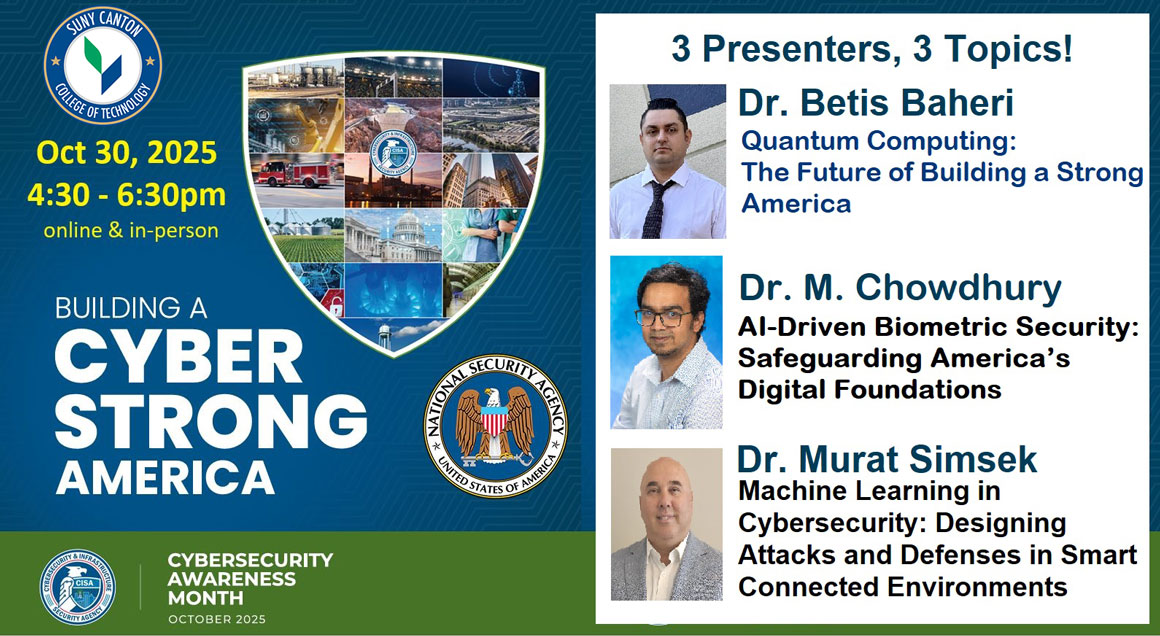
Cybersecurity Awareness Month 2025
October is Cybersecurity Awareness month. Join SUNY Canton as we explore ways to help individuals protect themselves online as threats to technology and confidential data become more commonplace. This month's theme is Be Cyber Smart to Secure Our World.

SUNY Canton has been selected for the prestigious National Security Agency (NSA) and Department of Homeland Security (DHS) Program of Study Validation.
Learn more about this designation.
Be Cyber Smart to Secure Our World - Three Presenters, Three Topics!

Dr. Betis Baheri
Quantum Computing: The Future of Building a Strong America

Dr. M. Chowdhury
AI-Driven Biometric Security: Safeguarding America's Digital Foundations

Dr. Murat Simsek
Machine Learning in Cybersecurity: Designing Attacks and Defenses in Smart Connected Environments


